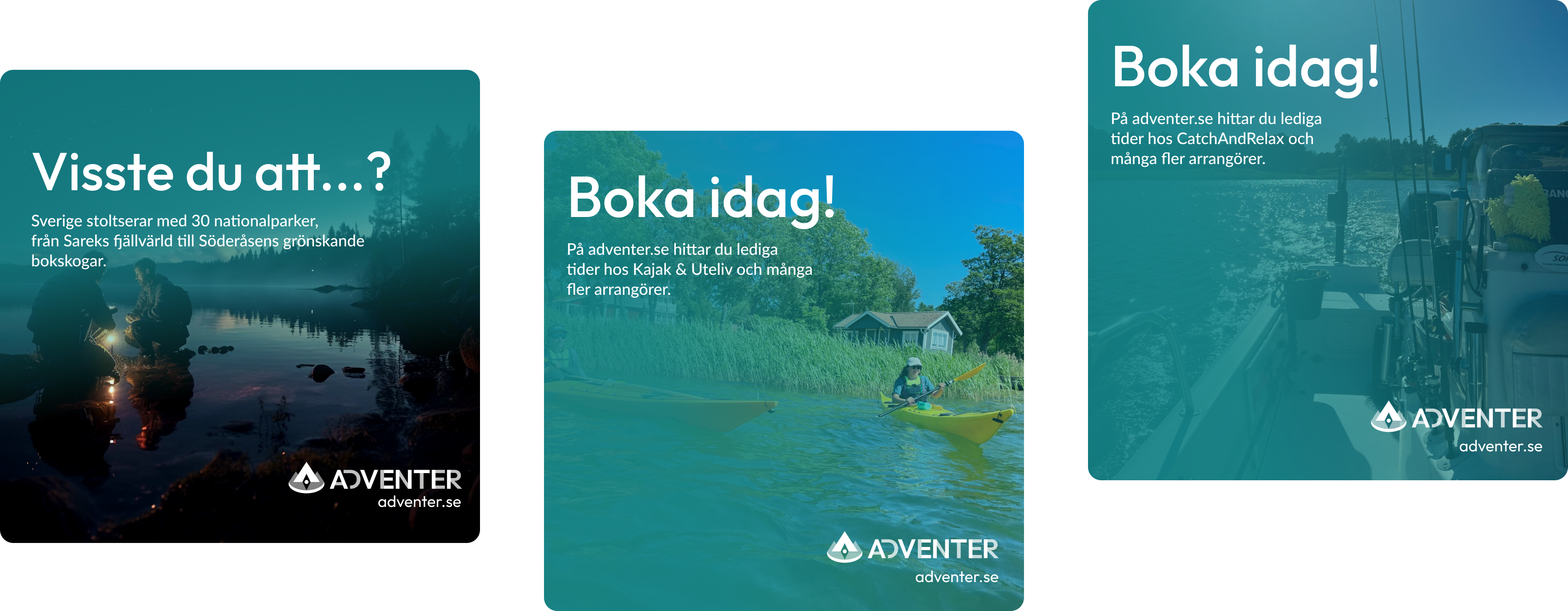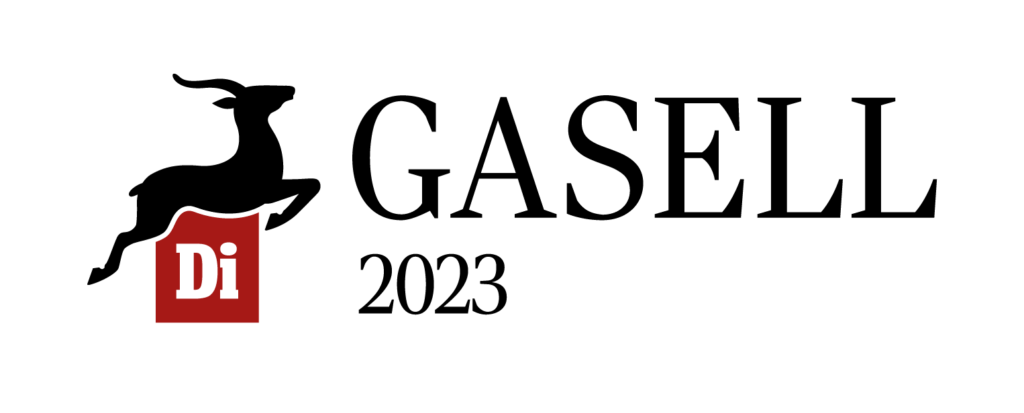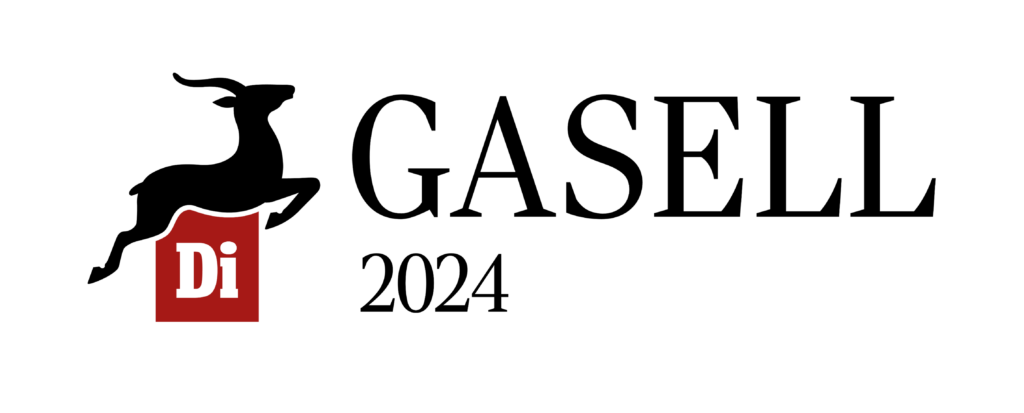From Scuba Steve to Adventure Platform
It all started underwater – literally. The idea for Adventer was born as a booking system for dive companies in Sweden and was given the working name Scuba Steve, a nod to Adam Sandler.
“Our target audience was small at the beginning,” says Olof Winberg at Adventer. “But after a market analysis we realized there was potential to open up for more types of adventures and activities.”
The result became Adventer – a digital marketplace that brings together the best of outdoor life and experiences in one place. Here, curious explorers can easily book their next dive, kayak tour, or hike, while organizers get a modern tool to reach new customers, grow, and handle administration such as bookings and scheduling. The ambition is to make booking an adventure as simple as booking a hotel room. The platform is run jointly by Plingot, Dykarna.nu, and the Adventer team, and is continuously developed to inspire more people to get out – whether it’s a spontaneous weekend trip or a corporate event.
The Development Journey with Adventer and Plingot
The journey began with an MVP – a simpler version to quickly test the concept. From those learnings, the platform was built step by step.
“Adventer has a very close collaboration with Plingot,” says Olof. “From the start the work has been agile and focused on digital product development. Plingot has always been responsive when we’ve needed quick solutions – when new needs arise, they solve them right away. At the same time, they’ve been proactive and contributed ideas that allow us to have an open dialogue about Adventer’s future.”
During the development process, Adventer continuously met with customers and listened to their needs. These insights were then translated into requirements for development, which Plingot implemented in the system – for example, features for gift cards that allow users to give away unique experiences.
The Platform Today – and Ahead
Adventer as a marketplace and adventure platform is today used by organizers in several regions, and more are lining up to join.
“Adventer receives requests from organizers around the country on a daily basis,” says Olof. “At the same time, we’ve rolled out our new booking system in small steps, starting with one organizer to get feedback and further develop the booking part for more companies that will be onboarded later this year. Adventer’s booking system is designed to easily manage bookings, schedules, and advanced booking rules.”
Looking ahead, Adventer also sees an opening toward the corporate events market.
“We’ve launched an MVP for B2B services,” says Olof. “It’s about providing companies with an easy way to find fun activities for kickoffs, conferences, or team-building events. Instead of searching around and requesting quotes, you just fill out a form and within a few days you receive responses from interested organizers. We clearly see a trend where companies want healthier activities, focused on positive shared experiences. As more organizations work remotely and colleagues meet less often, it becomes even more important to do something that strengthens team spirit when they do get together.”
Building Your Own – An Investment in the Future
Building your own system or software can be a big and costly project. But the gain is complete customization system development tailored to your own needs, not a compromise.
“My advice is to have a close dialogue with your developers and to start small, with an MVP. Begin with the most important parts and build more over time. The risk of focusing too much on details is that you end up prioritizing something with little impact on the bigger picture – and that might not even work once you go live. It also requires deep expertise to find a solution that can be launched quickly while still solving the customer’s most important problems. That knowledge and experience is what the Plingot team has – they’ve supported us both strategically and technically, always finding smart solutions in close collaboration with us at Adventer.”
For companies considering developing a digital platform, product, or app Plingot offers the expertise and experience to turn ideas into reality – from frontend and backend development to UX and UI design, integrations, and digital prototyping.
Want to try Adventer as an organizer, or book an exciting adventure? Check out adventer.se and discover the possibilities!

Technical Glossary
When working with digital product development, technical terms often come up. To make things easier for you as a reader – whether you’re a developer, organizer, or simply curious – we’ve gathered a short glossary. Here are explanations of the most common terms we use in the work with Adventer:
- MVP (Minimum Viable Product): A first version of a product with only the most necessary features. Launched early to test in reality and provide feedback for further development.
- API (Application Programming Interface): An interface that allows different software systems to communicate with each other. For example, when a booking system connects to a payment service.
- UX (User Experience): The user’s overall experience of a product or service – from usability and accessibility to the feeling of simplicity and smoothness.
- UI (User Interface): The interface the user interacts with. Buttons, colors, icons, and layout are parts of the UI and determine how easy a product is to understand and navigate.
- Frontend: The part of a website or application visible to the user and directly interacted with.
- Backend: The part that runs in the background. Here, logic, databases, and servers are handled to make what the user sees actually work.
- Integration: Connecting different systems to share information and work smoothly together. For example, connecting a booking platform to a payment solution.
- B2B (Business to Business): Transactions between companies, in contrast to B2C (Business to Consumer) where companies sell directly to consumers.
- Requirements management: Collecting and formulating the needs and wishes that a product must fulfill. Forms the basis for development work.
- Agile methodology: A flexible approach to product development where you work in short cycles, test, learn, and adjust along the way.
- Onboarding: The process where new users are introduced to a product or service so they quickly understand its value and get started smoothly.
Are you wondering how a digital solution could take your business to the next level?
At Plingot, we help you turn ideas into user-friendly apps, platforms, and systems – always with a focus on simplicity, smart design, and sustainable solutions.
Talk to us
